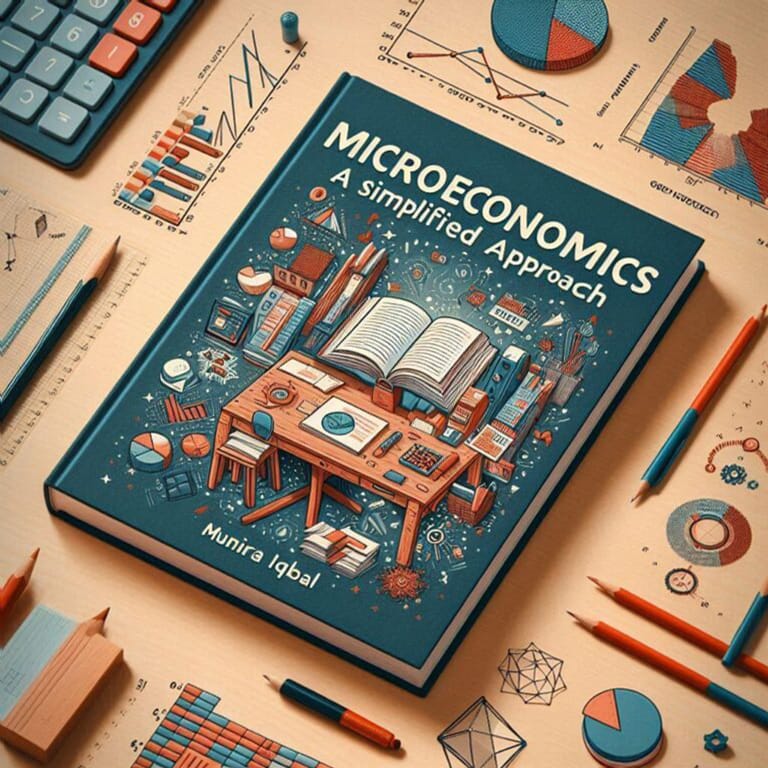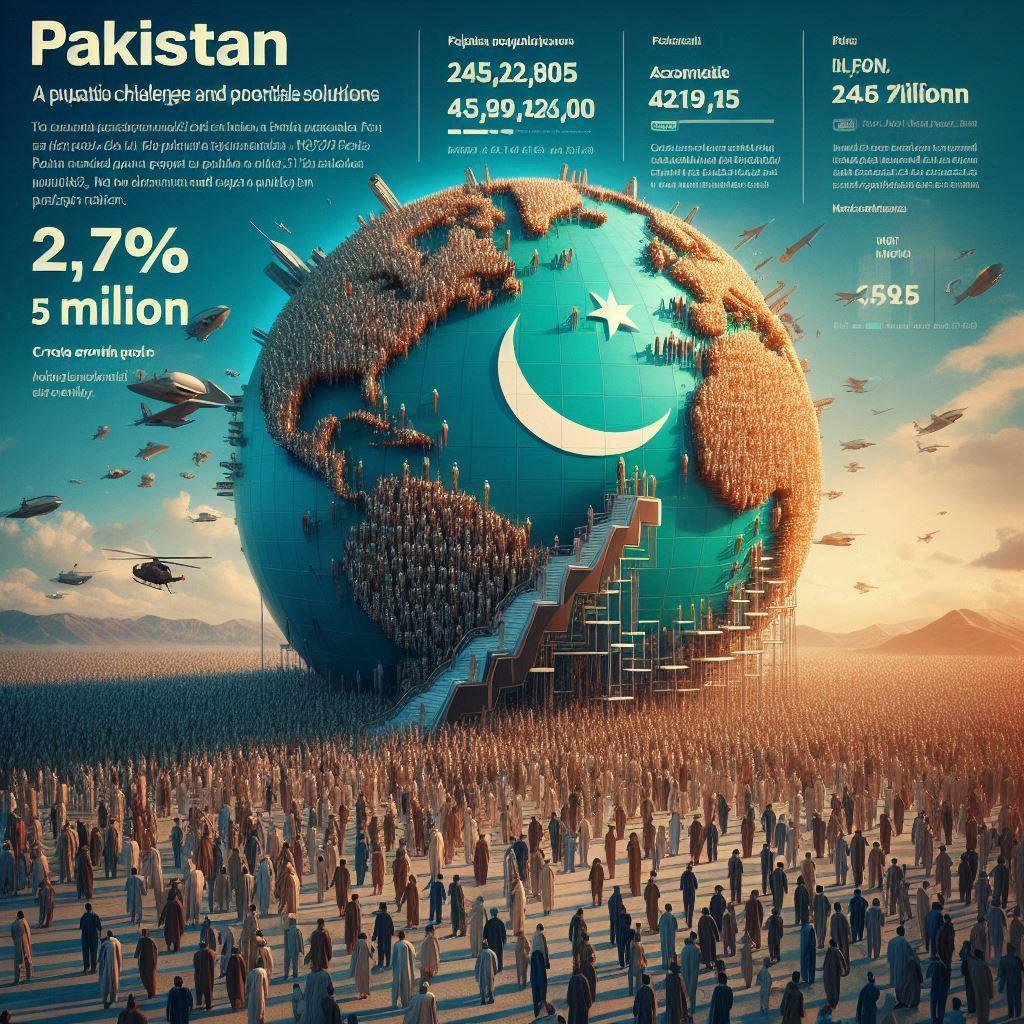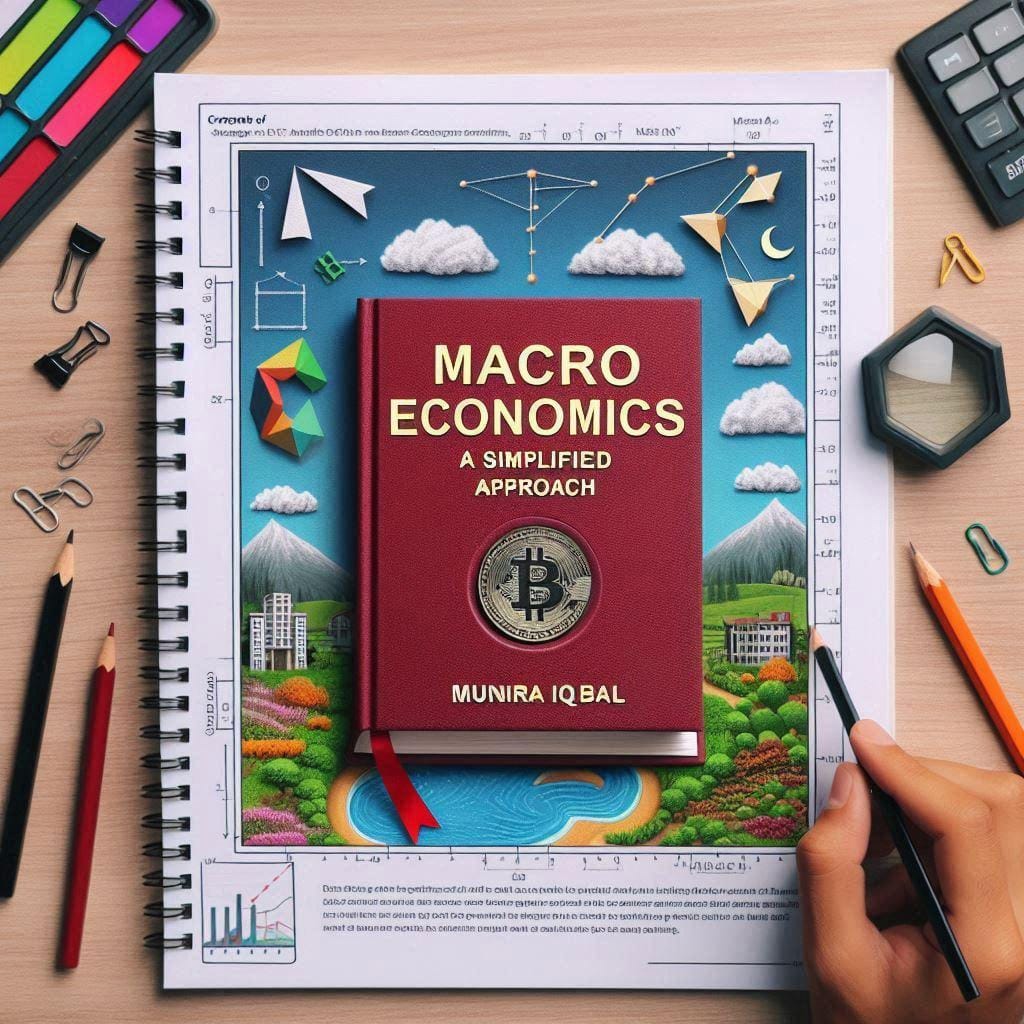Economics is often described as studying how societies use limited resources to produce valuable goods and services and distribute them among different people. It is a social science that deals with producing, distributing, and consuming goods and services. This chapter will lay the foundation by exploring economics, why it is essential to study, and the different branches of economics.
What is Economics?
Economics is a social science that studies how individuals, businesses, governments, and societies make choices about allocating resources. These resources can be physical, such as land, labor, and capital, or intangible, such as time and information.
Economics can be divided into two main branches:
- Microeconomics: This branch focuses on individual and business decisions regarding the allocation of resources. It looks at how these decisions affect the supply and demand for goods and services, which determines prices and how they are distributed.
- Macroeconomics: This branch examines the economy as a whole. It focuses on large-scale economic issues, such as inflation, unemployment, and economic growth.
Why Study Economics?
Studying economics is crucial for several reasons:
Understanding Choices:
Economics helps us understand the choices we make in our personal lives, businesses, and government policies. For instance, why do we choose one product over another? Why do businesses decide to produce certain goods?
Improving Living Standards:
By studying economics, we can develop policies to improve living standards. For example, understanding the factors that drive economic growth can help governments create strategies to reduce poverty and increase wealth.
Global Perspective:
Economics provides a global perspective on issues like trade, globalization, and international relations. It helps us understand how different countries interact economically and how policies in one country can affect others.
Understanding Human Behavior:
Economics helps us understand why people behave the way they do when faced with scarcity. For example, why do consumers buy more of a product when its price decreases? This concept, known as the law of demand, is a fundamental principle in economics.
Making Informed Decisions:
Whether it’s deciding how much to save for retirement or analyzing the costs and benefits of a government policy, economics provides us with the tools to make rational and informed decisions. By understanding concepts like opportunity cost and marginal analysis, we can evaluate trade-offs and make the best choices given limited resources.
Shaping Public Policy:
Economics plays a crucial role in shaping public policy decisions that affect society as a whole. From taxation and government spending to regulations and trade policies, economists provide valuable insights into the potential impacts of various policy options.
World around Us
Let’s consider a real-life example to illustrate the importance of economics. Imagine you are a farmer deciding how to allocate your limited land and labor resources between growing wheat and raising cattle. By applying economic principles such as opportunity cost and comparative advantage, you can determine the most efficient use of your resources to maximize your farm’s profitability.
Similarly, governments face economic challenges such as unemployment and inflation, which require careful policy interventions to address. For instance, during periods of high unemployment, governments may implement expansionary fiscal policies, such as increasing government spending or cutting taxes, to stimulate economic growth and create jobs.
In conclusion, economics is a dynamic and comprehensive field that offers valuable insights into the choices we make as individuals, businesses, and societies. By studying economics, we gain a deeper understanding of the world around us and acquire the analytical tools necessary to navigate complex economic issues.
Divisions of Economics
Economics is divided into several subfields, each focusing on different aspects of economic activity.
Microeconomics
Microeconomics examines how individuals and businesses make decisions and how these decisions interact. Key concepts include supply and demand, market structures, and consumer behavior.
Macroeconomics
Macroeconomics looks at the economy on a larger scale. It studies overall economic trends and policies, including national income, inflation, and employment levels.
Development Economics
This subfield focuses on improving the economic conditions of low-income countries. It examines issues such as poverty, education, health, and sustainable development.
International Economics
International economics studies trade between countries and the effects of globalization. It looks at how trade policies, exchange rates, and international agreements impact economies.
Theories and Models in Economics
Economics relies on various theories and models to explain and predict economic behavior.
Classical Economics
Classical economics, founded by Adam Smith, emphasizes the importance of free markets and competition. It argues that markets naturally regulate themselves through the forces of supply and demand.
Keynesian Economics
Keynesian economics, developed by John Maynard Keynes, focuses on the role of government intervention in the economy. It suggests that during times of economic downturns, government spending can help boost demand and pull the economy out of recession.
Modern Economic Theories
Modern economics includes a range of theories that build on classical and Keynesian ideas. These theories explore topics such as game theory, behavioral economics, and the impact of technology on economic growth.
Traditional, Command, and Market Economies
Economies can be categorized into three types based on how resources are allocated and decisions are made.
Traditional Economies
In traditional economies, decisions are based on customs, traditions, and beliefs. These economies are typically found in rural and agricultural societies.
Command Economies
In command economies, the government makes all economic decisions. It controls the production, distribution, and consumption of goods and services. Examples include the former Soviet Union and North Korea.
Market Economies
In market economies, decisions are made by individuals and businesses based on supply and demand. Prices are determined by the market, and there is minimal government intervention. Examples include the United States and most Western countries.
Gross Domestic Product (GDP)
GDP is a key indicator used to measure the economic performance of a country.
Definition
GDP is the total value of all goods and services produced within a country over a specific period, usually a year. It includes consumption, investment, government spending, and net exports (exports minus imports).
Importance
GDP is an important measure because it provides a snapshot of a country’s economic health. A growing GDP indicates a healthy economy, while a shrinking GDP can signal economic problems.
The Importance and Effects of Globalization
Globalization refers to the increasing interconnectedness of economies around the world.
Benefits
Globalization has several benefits, including access to a broader range of goods and services, increased investment opportunities, and the spread of technology and innovation.
Challenges
However, globalization also presents challenges, such as increased competition, potential job losses in certain sectors, and the risk of economic instability spreading from one country to another.
Behavioral Economics
We will briefly touch upon the concept of behavioral economics in upcoming lectures. It will help you understand how individuals behave in the real world and deviate from the rational decisions explained under major economic theories. Sometimes individuals and economic theories go parallel but several times they contest each other. This causes unexpected results. These deviations provide the basis for unpredictable recessions and booms. A rational analyst can sense these unexpected deviations but not predict them accurately and present them exactly.
Definition
Behavioral economics is a field that merges insights from psychology with economics to explore how individuals make economic decisions. Traditional economics assumes that people are rational agents who always make decisions that maximize their utility. However, behavioral economics challenges this assumption by highlighting that human behavior often deviates from rationality due to cognitive biases, emotions, and social influences.
Key Concepts in Behavioral Economics
Cognitive Biases:
These are systematic patterns of deviation from rationality in judgment, leading individuals to make illogical decisions. Examples include anchoring bias, where people rely too heavily on the first piece of information they receive, and confirmation bias, where people favor information that confirms their pre-existing beliefs.
Prospect Theory:
Developed by Daniel Kahneman and Amos Tversky, prospect theory describes how people value gains and losses differently, leading to decision-making that is inconsistent with expected utility theory. For example, people are generally more sensitive to potential losses than to equivalent gains, a phenomenon known as loss aversion.
Heuristics:
Heuristics are mental shortcuts or rules of thumb that people use to make decisions quickly. While they can be useful, they often lead to errors in judgment. For instance, the availability heuristic leads people to overestimate the likelihood of events that are more memorable or recent.
Nudging:
A “nudge” is a concept popularized by Richard Thaler, which refers to subtly guiding individuals toward more beneficial behaviors without restricting their freedom of choice. For example, automatically enrolling employees in a retirement savings plan increases participation rates compared to requiring them to opt in voluntarily.
Time Inconsistency:
Time inconsistency refers to the tendency of people to change their preferences over time, often leading to decisions that favor short-term gratification over long-term benefits. This can explain why individuals might save less for retirement than they should or why they might indulge in unhealthy habits.
World around Us
Behavioral economics has practical applications in various fields, such as:
- Public Policy: Governments use behavioral insights to design policies that encourage beneficial behaviors, such as increasing tax compliance or promoting healthy lifestyles.
- Marketing: Companies apply behavioral economics principles to influence consumer behavior, such as through pricing strategies or product placement.
- Finance: Understanding cognitive biases helps explain market anomalies and investor behavior that cannot be accounted for by traditional financial theories.
Summary
Behavioral economics provides a more realistic understanding of economic behavior by incorporating psychological insights into the analysis. It has significantly expanded the scope of economics, offering new ways to improve decision-making and policy design.
*Important Note: For more detailed explanations, you can consult the lecture about the “Theory of Consumption”.
Reference
For further reading, you can explore Richard Thaler’s book “Nudge: Improving Decisions About Health, Wealth, and Happiness” or Daniel Kahneman’s “Thinking, Fast and Slow,“ which delve deeper into the principles of behavioral economics.
Space Economy
The space economy is not only likely to be a prominent subject of the next millennium but also a transformative force in how humanity approaches resources, technology, and sustainability. Here’s an in-depth exploration of its potential implications:
Space Economy as a Subject of the Next Millennium
The “space economy” encompasses the full range of activities and resources related to the development, exploration, and utilization of space. This includes satellite-based services, asteroid mining, space tourism, interplanetary logistics, and even the colonization of extraterrestrial bodies.
- Expansion Beyond Earth: As Earth’s resources become strained, space offers vast untapped opportunities. Asteroids rich in rare earth metals, helium-3 on the Moon, and Martian minerals represent potential new wealth sources.
- Technological Growth: Investment in space technologies can lead to innovations applicable both in space and on Earth, such as advanced materials, energy solutions, and AI-driven systems.
- Global Cooperation and Competition: Space will likely become a new frontier for geopolitics, fostering collaborations and rivalries that shape the next century’s technological and economic landscapes.
Benefits to Earth’s Economy
- Resource Expansion:
- Asteroid mining could supply rare materials for advanced technologies, reducing scarcity and driving down costs for critical components like semiconductors and batteries.
- Space-based solar power systems might address Earth’s energy needs sustainably, providing an alternative to fossil fuels.
- Technological Innovation:
- Space exploration often produces spin-off technologies that enhance everyday life (e.g., GPS, medical imaging technologies, and improved telecommunications).
- Advancements in robotics, AI, and automation developed for extraterrestrial use can improve productivity on Earth.
- Economic Diversification:
- Space-related industries (e.g., tourism, infrastructure building, and energy harvesting) can create new markets and job opportunities.
- Investments in space provide long-term growth opportunities and a hedge against economic stagnation on Earth.
- Global Problem Solving:
- Observational technologies from satellites can improve climate monitoring, disaster response, and urban planning.
- The knowledge gained from addressing challenges in space could lead to sustainable living solutions for Earth.
Potential Harms and Challenges
- Inequality:
- Without careful regulation, the benefits of space exploration might be monopolized by wealthy nations and corporations, exacerbating economic inequalities.
- Access to space technologies could become another point of contention between developed and developing nations.
- Environmental Concerns:
- Space activities risk creating orbital debris, threatening both satellites and space stations.
- Mining celestial bodies might have unforeseen consequences, potentially altering their ecosystems or orbital paths.
- Economic Displacement:
- Overreliance on space resources could destabilize traditional industries, leading to significant disruptions in labor markets and economies reliant on Earth’s finite materials.
- Regulatory and Ethical Issues:
- Space exploration raises questions about property rights, resource ownership, and the ethical implications of exploiting extraterrestrial bodies.
Role of Behavioral Economists in the Space Economy
Behavioral economists will play a crucial role in incorporating space economy concepts into economic frameworks:
- Understanding Incentives:
- Analyzing what drives individuals, corporations, and governments to invest in and support space initiatives.
- Designing incentives to promote sustainable and equitable use of space resources.
- Predicting Market Dynamics:
- Studying how public perceptions and behavioral biases (e.g., fear of the unknown or excitement about innovation) influence the space economy.
- Modeling consumer and investor behavior in emerging markets like space tourism or off-world manufacturing.
- Addressing Inequality:
- Crafting policies that ensure broad access to the benefits of space exploration, mitigating the risks of wealth concentration.
- Using insights into behavioral patterns to encourage equitable participation in space industries.
- Shaping Long-Term Thinking:
- Encouraging governments and corporations to consider the long-term consequences of space activities rather than focusing on immediate profits.
- Promoting behavioral changes necessary for sustainable interaction with space resources.
Hence
The space economy offers immense potential to benefit humanity through resource expansion, innovation, and economic diversification. However, it also poses significant risks related to inequality, environmental impacts, and regulatory challenges. Behavioral economists will be critical in designing systems that align human behavior with the goals of sustainability and fairness, ensuring that space exploration becomes a force for collective progress rather than division.
Critical Thinking
- How do traditional, command, and market economies differ in terms of resource allocation and decision-making processes?
- Which economic system do you think is most effective and why?
- Analyze how globalization might affect local businesses in your country.
- What measures can governments take to reduce the negative impacts of globalization on local economies?
- Discuss the limitations of using GDP as the sole measure of a country’s economic well-being.
- What other indicators could provide a more comprehensive picture of economic health?




